Rakshastal Lake Kailash Yatra
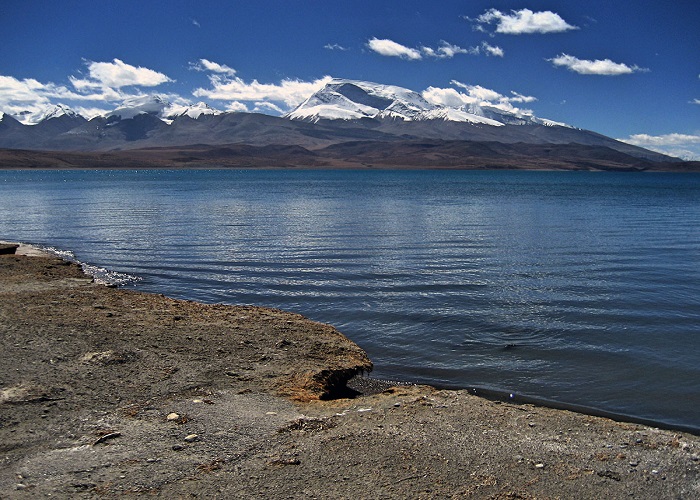
Places to Visit In and Around Kailash Mansarovar India Travel Blog
Interestingly, while Lake Mansarovar contains freshwater and has birds and vegetation around it, the Rakshas Tal presents a bleak contrast, where the water is high in salt minerals and does not support wildlife and plants around it. The Tibetan name for Rakshas Tal is Lagngar Cho, which means 'the dark lake of poison'.

Rakshastal Lake Kailash Yatra
Rakshas Tal, also known as Ghost Lake or Demon Lake is located just a few kilometers away from Mansarovar lake. I reached Rakshas Tal from Mansarovar on a car. As I headed towards Darchen to start the parikrama around Kailash Parbat, I had stopped for a few minutes at the jinxed Rakshas Tal. The two lakes are as different as chalk and cheese.
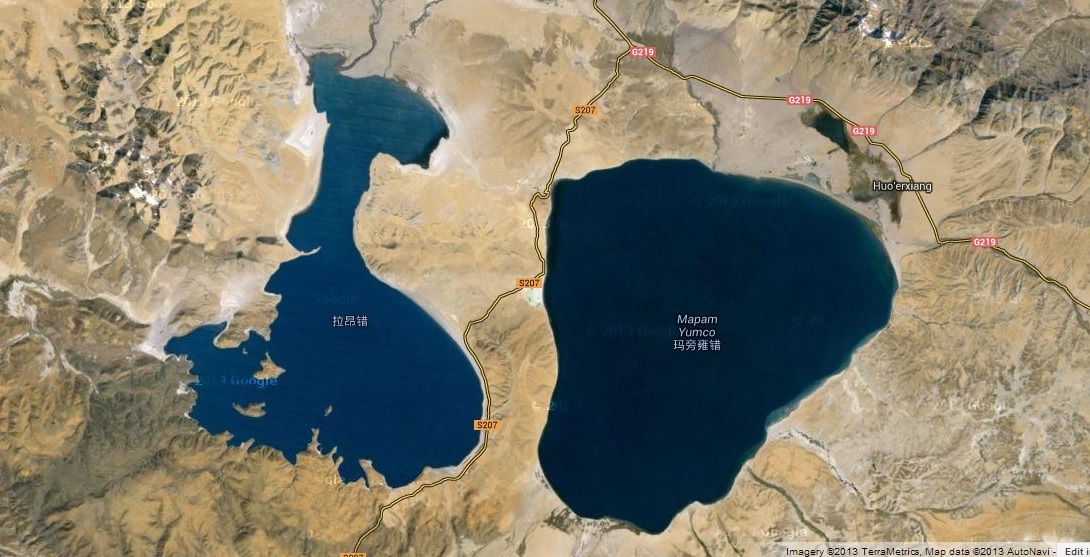
रहस्यमयी कैलाश पर्वत,आखिर क्यों डरते है पर्वतारोही कैलाश पर्वत पर चढ़ने से Being Pahadi
They are the highest freshwater bodies globally, with Mansarovar at 4,558metres, about fifteen meters higher than the Rakshas Tal. The two lakes are connected by a channel called 'Ganga Chu'. Mansarovar is the largest of the two lakes (330sq km as opposed to 224sq km) and considered by Buddhists and Hindus to be the more worthy of veneration.

Rakshastal Lake Kailash Yatra
Surrounded by various legendary stories and tales, the Rakshas Tal lies to the west of Lake Mansarovar and is known as Lang-Tso in the Tibetan language. As per legend, the origin of the lake dates back to the time when Ravana was meditating at the place to obtain supernatural powers from Lord Shiva.
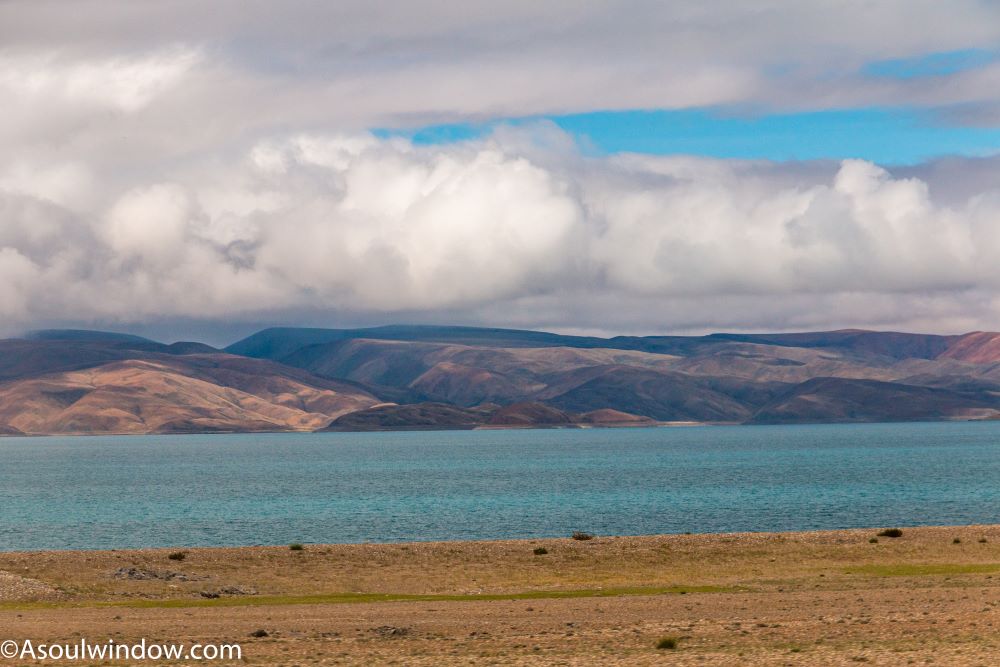
Rakshas Tal The cursed lake of Kailash Mansarovar Yatra A Soul Window
Rakshastal (Rakshas Tal; Sanskrit: राक्षस ताल) is one of them. Situated at an altitude of 4,575 metres, Rakshastal covers a total area of 250 square kilometres. It is lying on the west of the holy lake Mansarovar and in the south of mount Kailash. From the north-western tip of Rakshastal, the river Satluj originates.
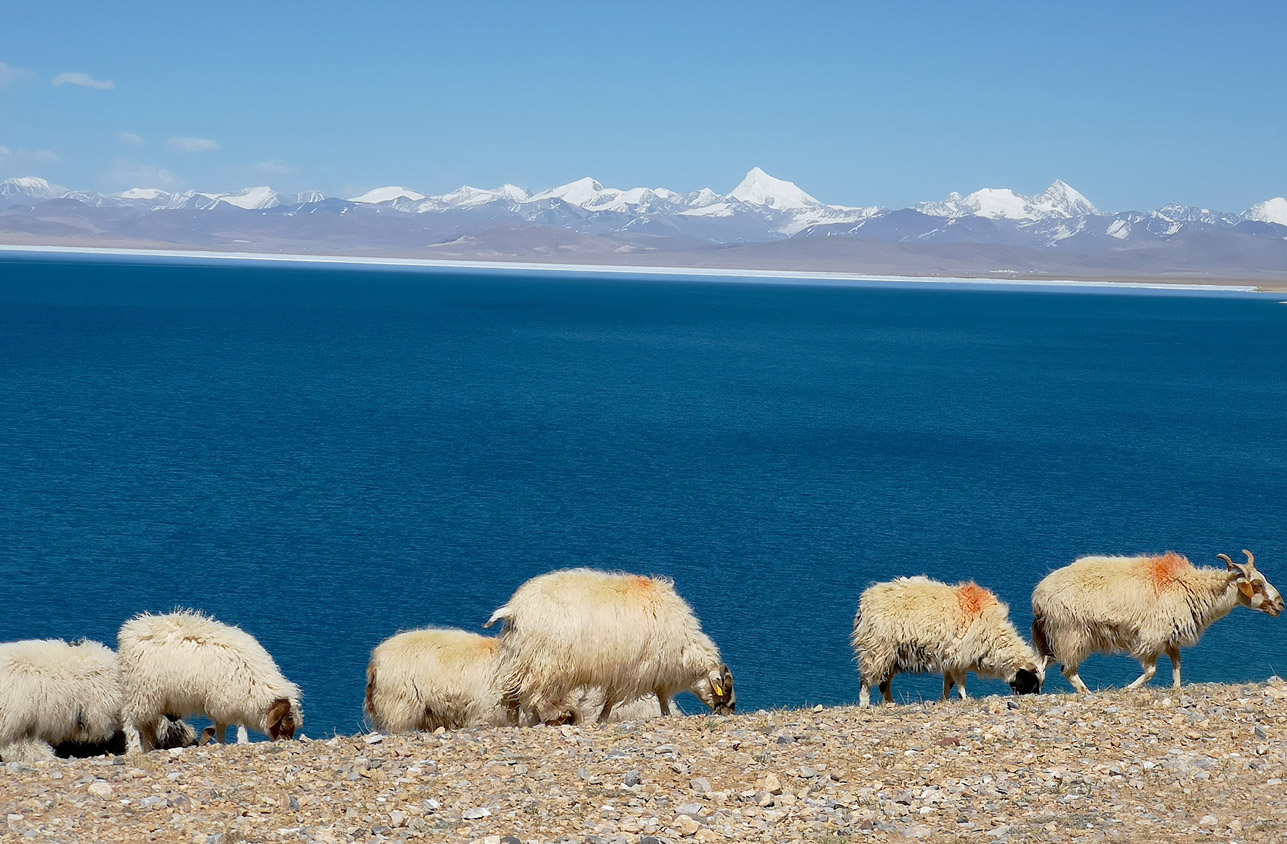
Lake Rakshastal where Ravana beheaded his own heads to please Lord Shiva Travel. Learn!
Wondering which is the best season to visit? The dry, rough winds teamed up with the plummeting temperatures of Mount Kailash makes summer the best season for this trip. Pleasant, warm weather along with dry roads are essential for a successful Mount Kailash and Lake Mansarovar trip.

Pin by The Black The White on Tibet Tibet, Natural landmarks, Scenery
2) Rakshas Tal: Rakshas tal is also known as 'Ravana lake- the lake of Demons.' It is believed to be the dwelling place of Ravana and so it was named as Rakshas Tal. The lake is situated near Mansarovar and is recognized as the largest saltwater lake of Tibet. The lake includes four islands namely Dola, Topserma, Lachato, and Dosharba.

January 2014 Kailash Mansarovar Yatra
Rakshastal is a lake that you can visit on your Kailash Mansarovar Yatra. The literal meaning of Rakshastal is a lake of demons'. Rakshastal is one of the biggest lakes near Mount Kailash. Rakshastal is just next to Lake Mansarovar. However, both Mansarovar and Rakshastal are very different from each other.

rakshastal hashtag on Twitter
Lake Rakshastal is a saltwater lake and it lies just west of Mansarovar and south of Mount Kailash . Despite of being located geographically close to each other ,Lake Mansarovar is characteristically opposite to Rakshastal. Lake Mansarovar freezes in the winer and is one of the highest freshwater lake in Asia.
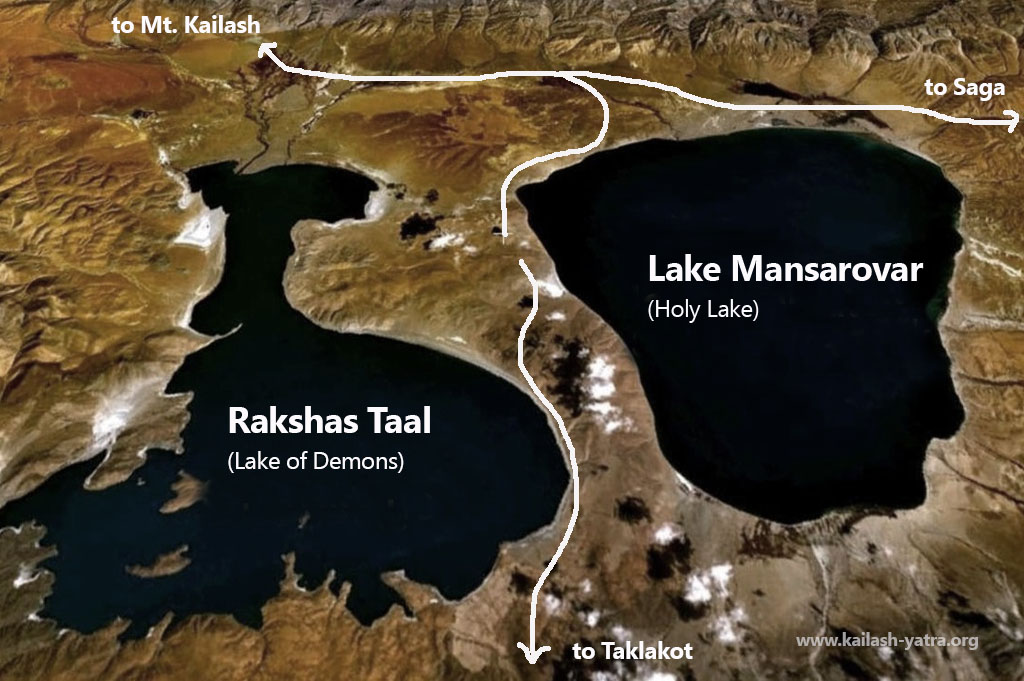
Rakshastal Lake Kailash Yatra
Lake Rakshas Taal. The lake of the Demon. Rakshas Tal is situated west of holy Manasarovar Lake near Mt Kailash. The river Sutlej originates from the north-western tip of Rakshas Tal. At the height of about 4752 meters (15,591 ft).. VIEW DETAILS
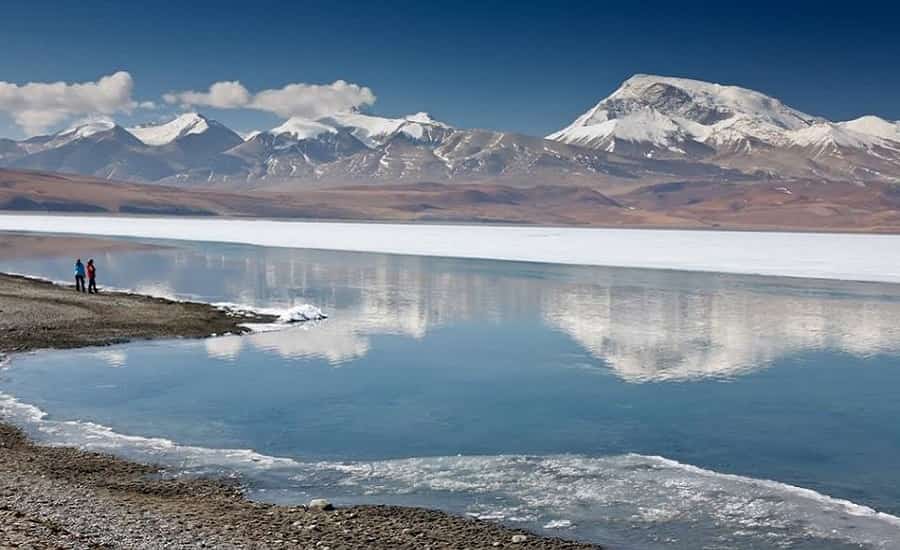
A Complete Guide to Kailash Mansarovar Yatra & Mount Kailash Devendra Singh Blog
Rakshastal is a saline lake. There is a short river named Ganga Chhu, which connects Lake Manasarovar with Rakshastal, believed to be created by rishis to add pure water from Manasarovar. There are four islands in Rakshastal, named Topserma (Dose), Dola (the two biggest), Lachato (Nadzhado), and Dosharba. [4]

Tibet The Lakes in Winter Outlook Traveller
July 23, 2017 00:06 IST Follow Us Rajkanya Vyas of Jodhpur, who doesn't speak till she has bathed. (Photo: Anmol Purohit) Welcome to the abode of Lord Shiva. The kind and soft-hearted Bholenath resides on this hilltop in western Tibet at an elevation of 6,638 metres (21,778 feet).
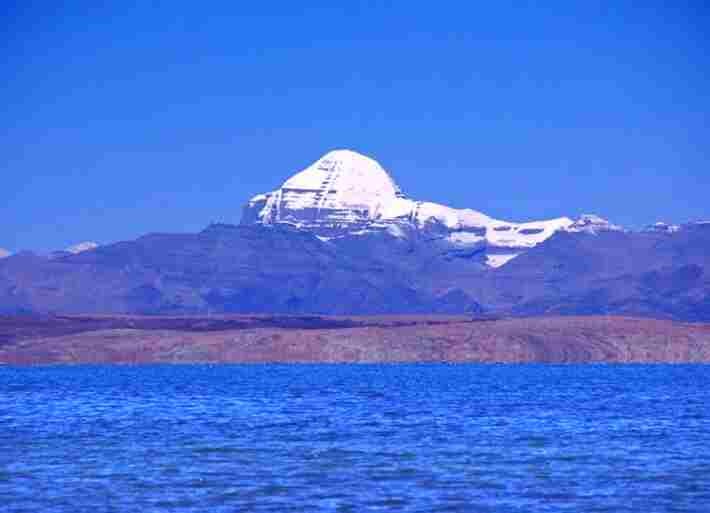
Things To Know Before You Visit Mansarovar
Tibetans call Mansarovar Tso Mapham meaning the undefeatable lake. For the Bonpo, Kailash and Mansarovar are the father and mother of the earth. Mansarovar is Sun shaped and Rakshas Tal is Moon shaped. Originally it was a single lake. A narrow stretch of land came up and split them into two. Rakshas Tal is a distance of about 5 km from Manasarovar.
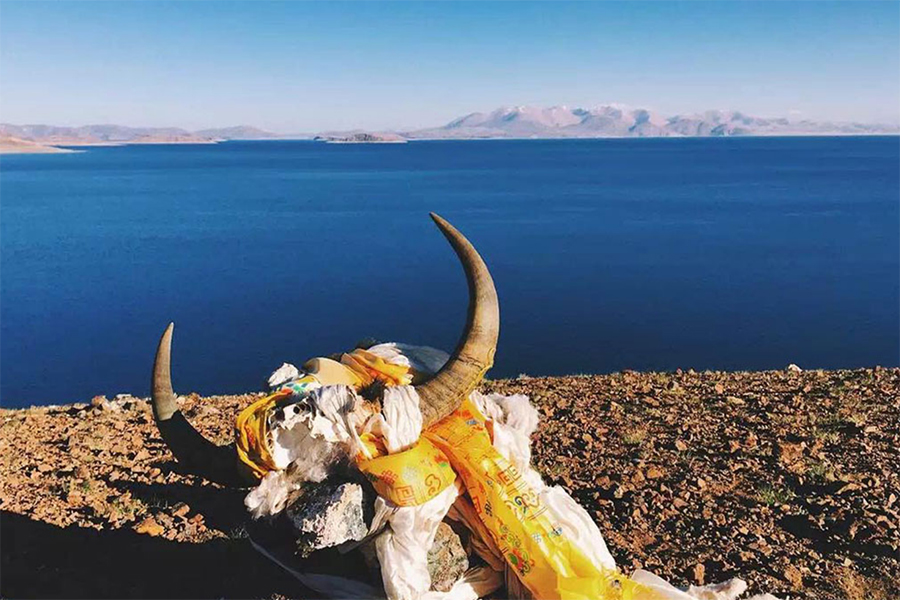
Rakshastal The Origin of the Sutlej River Shrine Yatra
In Tibetan Plateau, about 4600m elevation, If Lake Manasarovar and Lake Rakshastal ("lake of the demon" ) used to be the same lake, but due to the tectonic activity now they are separated to two by small hills, how come Lake Manasarovar is a fresh-water lake while Lake Rakshastal is a salt-water lake?

Pin on Travel Dairies of ShruSaw
Last Updated on September 30, 2022 by asoulwindow Table of Contents Information about Rakshas Tal Where is Rakshas Taal located? Why is Rakshas Taal Famous? My Experience of visiting Rakshas Tal Altitude of Rakshas Taal Area of Rakshas Tal Landscape of Rakshas Taal No Sign of life at Rakshas Tal Islands of Rakshas Taal Depth of Rakshas Taal

Incredible Compilation of Full 4K Kailash Mansarovar Images Countless Images of Kailash Mansarovar
The Rakshas Tal is confirmed as an agglomeration of four islands namely Dola, Topserma, Lachato and the Dosharba which are most commonly used by the locale people present there with the sole intention of facilitating the winter pastures for their yaks.